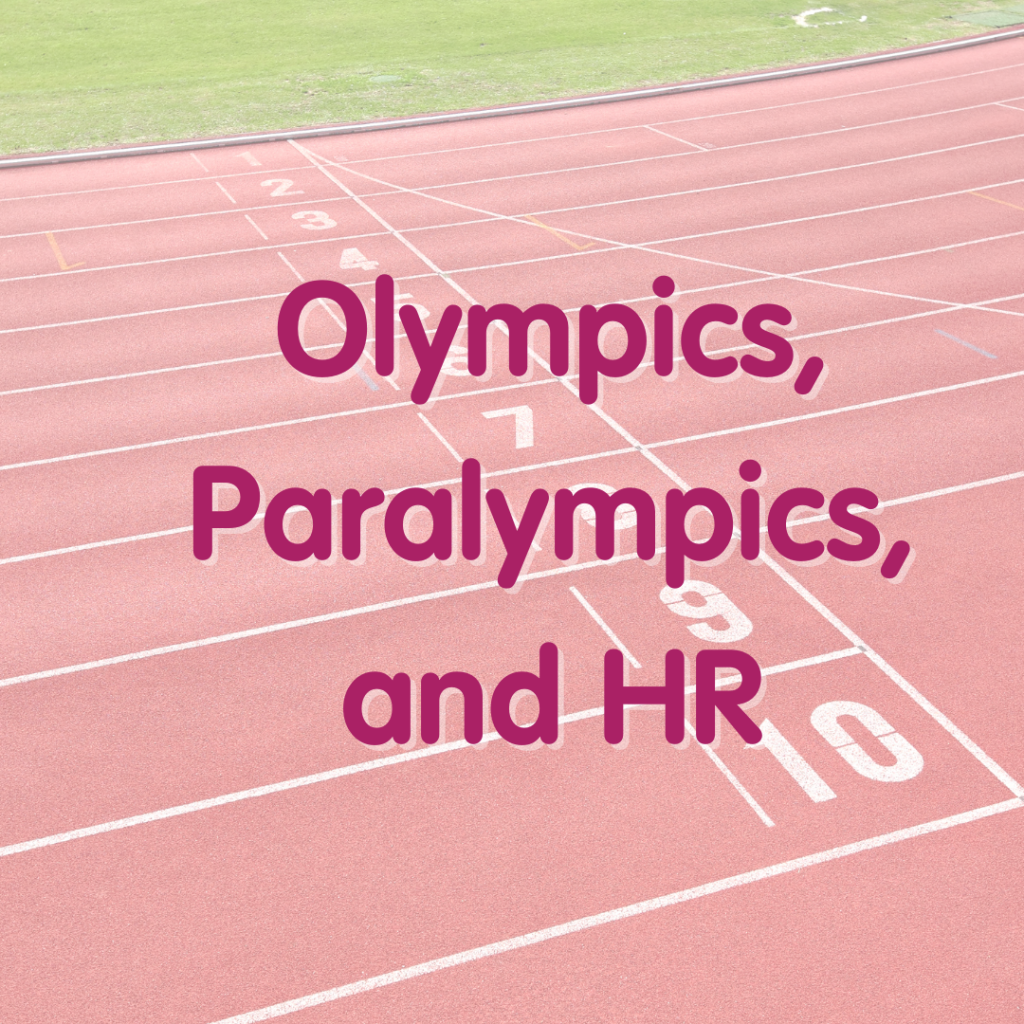
The Olympics are being held from 26th July to 11st August and Paralympics from 28th August to 8th September 2024.
While we may be glued to our TV screens with snacks at the ready to see if England can scoop their gold medals…
Perhaps we are more inspired to dust off our trainers from the cupboard and try our hand at a new sport…
The Olympics and Paralympics are a great opportunity to celebrate the determination, hard work, and admirable achievements of world-class athletes.
However, as we get involved with the Games the Paralympics in particular is a fantastic reminder of the success that can be accomplished by overcoming barriers that can be created by disabilities.
The message to focus on what these athletes can do rather than what obstacles they face is a message all employers should take on board to help challenge stereotypes around disabilities in the workplace and prevent discrimination.
In this latest blog, we discuss how to spot discrimination in the workplace, so employers can promote inclusion and diversity within the workplace.
Equality Act 2010
The Paralympics showcases how to remove barriers, embrace inclusion, and celebrate our achievements.
The Equality Act provides a variety of protections for disabled staff which colleagues and employers should
Reasonable adjustments
Employers have a duty to make reasonable adjustments for employees with disabilities.
This could be adjustments to a person’s work schedule, role and responsibilities, working environment, or even equipment and technological support.
Adjustments should be tailored to individual needs. When considering reasonable adjustments it is best to discuss possible adjustments together with the employee and review the impact the adjustments make and if any changes need to be made.
Having conversations with staff can help you understand what has worked for them before, whilst the employee may not have all the answers, they can help identify some adjustments that may help.
If an employer fails to make a reasonable adjustment they can be faced with costly disability discrimination claims.
Employers should be aware the duty to make reasonable adjustments also extends to recruitment, and HR professionals should check their recruitment procedures and policies to encourage and support individuals with disabilities.
Types of discrimination
There are a number of different types of discrimination that are unlawful under the Equality Act.
Direct discrimination
Direct discrimination is where someone is treated less favourably because they possess one of the protected characteristics.
An example would be refusing to hire a candidate because they suffer from a long-term health condition such as severe anxiety or an auto-immune disease.
Harassment
Harassment occurs if there is unwanted conduct that is “related to” a protected characteristic.
It occurs when an individual engages in unwanted conduct that has the purpose or effect of either violating someone’s dignity or creating an intimidating, hostile, degrading, humiliating, or offensive environment for them.
For example, colleagues make unwanted comments and jokes about a staff member’s IBS, which makes them feel humiliated and degraded.
Victimisation
Victimisation is when someone is treated less favourably as a result of being involved with a discrimination or harassment complaint.
For example, someone raised a grievance about discrimination as being left out of staff meetings and left out of company events where before they would be invited.
Indirect
Indirect discrimination is where a “provision, criterion or practice” (“PCP”) in the workplace has a disproportionately negative impact on a group of individuals who share a protected characteristic. If an employer cannot show objective justification for the PCP, this will amount to unlawful discrimination.
For example, having a break policy which requires staff to only have food at certain times. For individuals suffering from diabetes, this could be indirect discrimination
Discrimination arising from a disability
Discrimination arising from a disability is when an employee is treated unfavourably because of something that results from a disability, not because of the disability itself.
For example, someone who suffers from cancer is dismissed for having a 3-month absence for attending hospital for treatment and recovery.
The dismissal is not because of the disability. However, the worker has been treated unfavourably because of something arising as a consequence of their disability. This consequence is because of the need for them to take sick leave due to cancer.
For employers is it important to be mindful of the different ways disabled staff can be detriment in the workplace, so create inclusive and supportive workplaces for all staff.
The Paralympics help inspire future generations, helping demonstrate the diverse world we live in.
The lessons employers can take from the Paralympics should remember are.
- There is no one size fits all
- Equity over Equality
- Accessibility is crucial
If you need advice on managing employees in the workplace and want to find out more about our Equality, Diversity, and Unconscious Bias training, please contact us at 0333 888 1360 or complete the enquiry form.






